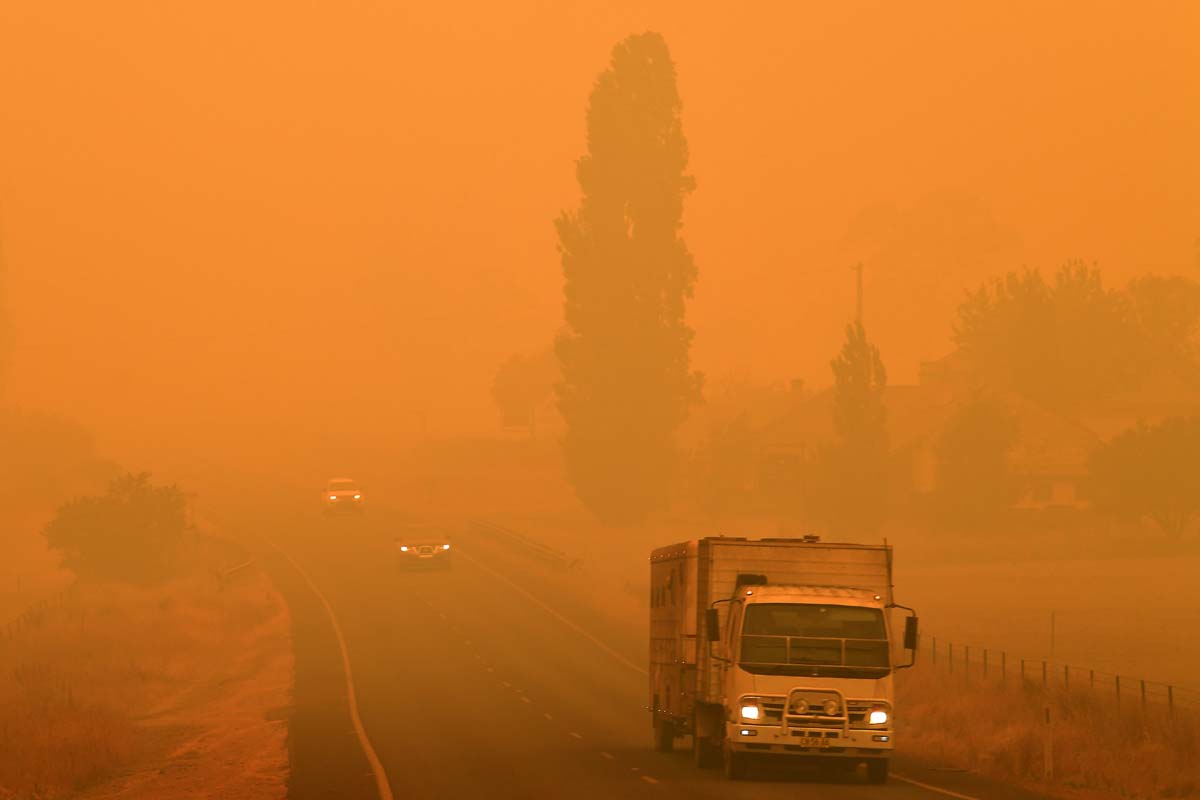The scale of the national catastrophe in Australia is awesome to even imagine. Reminiscent of the disaster in Brazil some months ago, the bushfire in south-western Australia has till Saturday morning engulfed no less than 5.5 hectares of the land ~ said to be larger than Denmark and the Netherlands put together. A look at the sky was a signal that the cauldron may take a while to douse; reports suggest that the sky first turned back, then a terrifying apocalyptic red.
Of course gobal heating is central to the catastrophe; regretfully, however, Prime Minister Scott Morrison has tried to deflect and distract from the role played by global warming in a national disaster. Almost as forbidding as the fire has been the biggest-ever population exodus, most particularly from New South Wales. In neighbouring Victoria, a state of disaster has been announced, permitting formal evacuation orders to be issued.
Advertisement
The army and navy have been deployed to transport residents from affected areas, at risk of further devastation. The trail of destruction, which has so far led to the loss of 18 lives, has been facilitated by a combination of searing heat, strong winds and a record-breaking three years of drought, which has left the soil extremely moist. Mercifully, one is inclined to supplement, the anxiety to industrialse is not a compelling factor as in Brazil.
This is a national catastrophe. It is fervently to be hoped that the courage, skill and fortitude of local residents, emergency services and the armed forces will be able to mitigate the disaster. Yet it may be a while before the worst is over as Australia braces for the hot, hotter, hottest phase of summer. Not that Prime Minister Morrison was not warned of the impact of the climate crisis on Australia.
But as this tragedy has unfolded, one of Mr Morrison’s main concerns has been to underplay this obvious truth. Having initially been reluctant to cut short his Christmas holiday in Hawaii to deal with the emergency, Mr Morrison denied any “direct” link between the fires and global climate change. He then used a video address on New Year’s Eve to assert that previous generations had “also faced natural disasters, floods, fires, global conflicts, disease and drought”.
In a word, the response of the highest level of governance does not match the enormity of the tragedy; that response has been wholly inadequate, almost perfunctory. Australia has one of the highest levels of per capita CO2 emissions in the world and is unlikely to meet its highly modest reduction target of 26 per cent to 28 per cent by 2030.
The Prime Minister has pledged to maintain Australia’s position as the leading coal exporter. The country’s energy minister, Angus Taylor, has suggested that countries like Australia cannot single-handedly have a meaningful impact on global emissions when China and India fail to follow suit. That is a counsel of despair as Australia becomes hotter, dryer and more dangerous.











